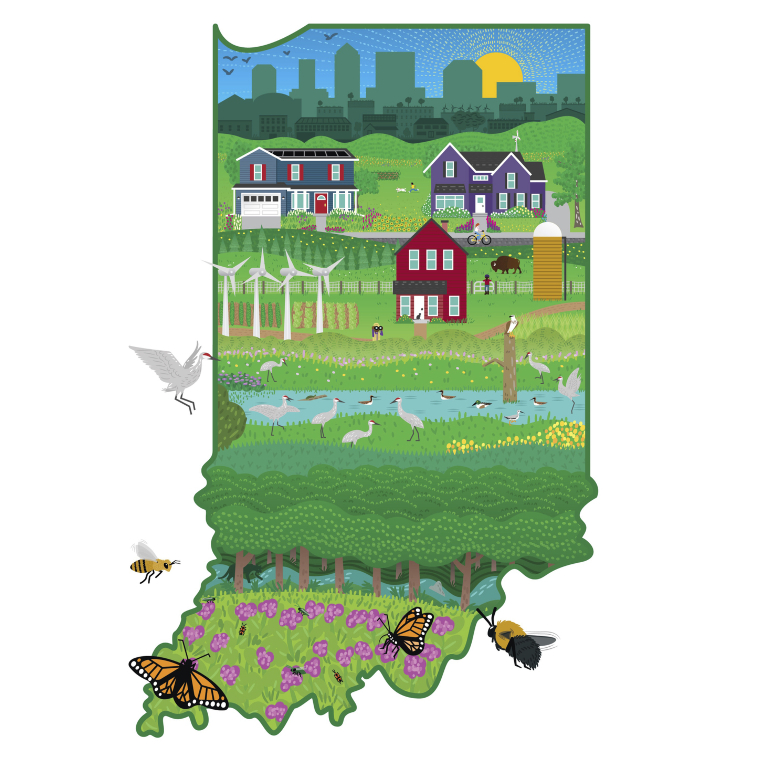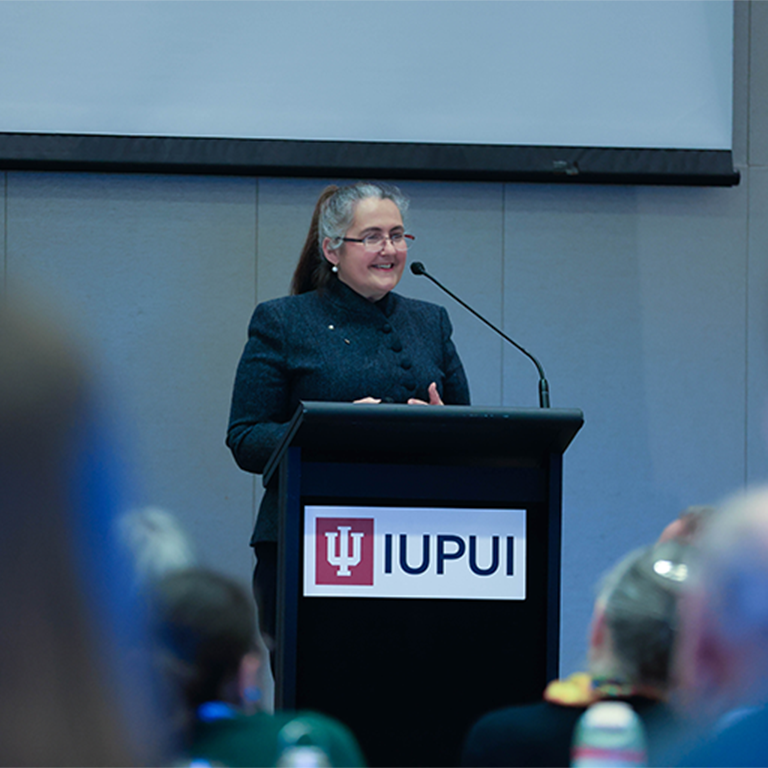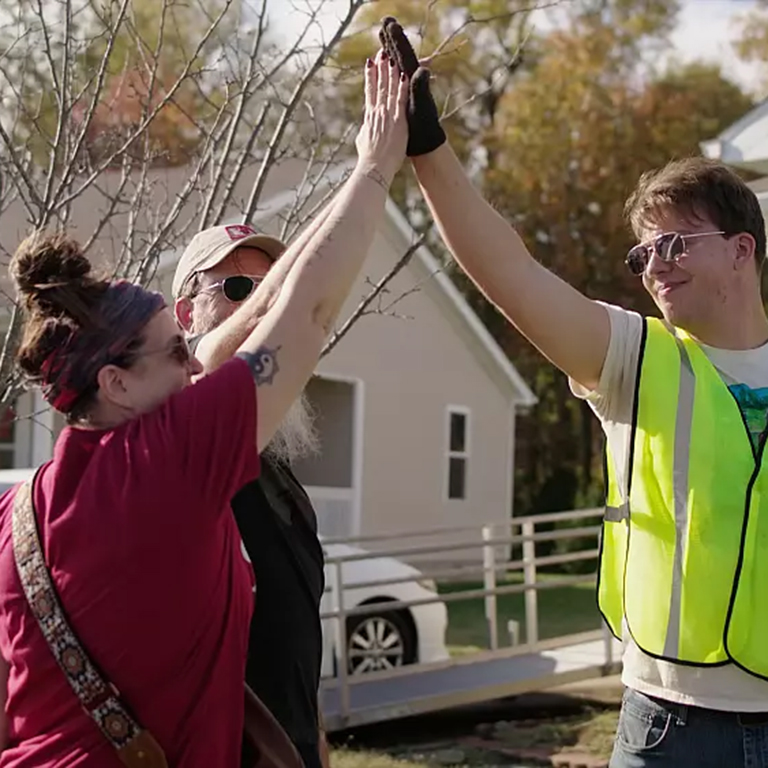In 2024, Indiana University’s Environmental Resilience Institute doubled down on its efforts to support the sustainability goals of local communities, businesses, and nonprofits and to facilitate research and education on climate and environmental science.
The year was marked by significant funding awards for climate and resilience projects in the state, another maxed out Indiana Sustainability and Resilience Conference, and trees being planted in partner communities.
Inspiring Hoosier climate leaders
In February, ERI hosted more than 350 sustainability professionals, students, entrepreneurs, and community leaders at the Indiana Sustainablity and Resilience Conference, highlighting actions being taken across the state to lower energy costs, reduce pollution, and grow the green economy in Indiana. Author and nonprofit leader Michelle Moore delivered a keynote talk on the power of public utilities in American life, drawing on Indiana history to illustrate how utilities can be harnessed for the good of all.
Supporting local communities
During another record breaking year for heat, ERI affiliated students and faculty worked with the City of Bloomington to develop an extreme heat action plan for the community.
In its second year of existence, the Indiana Resilience Funding Hub continued to provide grant-writing support to rural communities for federal sustainability funding. Successful partnerships included an award to the Town of Gentryville for an electric police truck and a planning grant for the Town of Newburgh through the Safe Streets and Roads for All program.
The Hub also played a role in helping an Indiana coalition secure a $117 million grant to broaden access to solar energy in the state. The Solar for All grant is funding programs that incentivize community solar installations as well as solar adoption among low-income residents.
This year’s cohort of McKinney Climate Fellows took on projects advancing the sustainability goals of businesses, nonprofits, and local governments in the state. Examples of work led by fellows include sustainability strategic planning, tree planting and planning, and community outreach. During a celebration event for Fellows in October, the institute recognized the legacy of Bob McKinney, a longtime ERI and environmental champion who passed away days earlier.
(Top) Nick Polak, a member of the IU Healthy Cities Lab research team, places sensors around Bloomington that will give community leaders insight into the range of conditions residents face on a hot summer day. (Bottom left) Michelle Moore, the keynote speaker at the Indiana Sustainability and Resilience Conference, speaks to the audience about her experiences collaborating with communities on solar and energy efficiency projects as a way to improve lives and build economic resilience. (Bottom right) Larson Parker, right, a McKinney Climate Fellow with the City of Evansville, high fives volunteers at a tree planting event in Evansville.
Sharing research and knowledge
In April, over 50 students, faculty, and staff gathered at the Indiana Memorial Union for ERI’s 2024 Research Symposium. At the event, faculty from the Bloomington and Indianapolis campuses shared their climate and resilience research, which ranged from science communication, to sustainability and climate planning, to the development of easy-to-use phosphate sensors for farmers.
In August, ERI sent a delegation to the Midwest Climate Adaptation Science Center’s annual gathering. Representatives included Executive Director Gabe Filippelli, O’Neill School of Public and Environmental Affairs Professor Kim Novick, as well as two members of IU Bloomington’s biology department, Professor Richard Phillips and PhD candidate Nicole Spanier. While there, Spanier spoke to attendees about her study of tree resilience and drought in the face of climate change.
Later in the year, ERI and the Integrated Program for the Environment announced a new class of 16 Sustainability Scholars that will conduct research with the support of IU faculty.
Celebrating community partnerships
Through a series of web pages, ERI celebrated its ongoing partnerships with Indiana communities in 2024, highlighting long-term collaborations spanning climate action planning, research, and workforce development with the cities of Bloomington, Fort Wayne, Indianapolis, and South Bend.
About the Environmental Resilience Institute
Indiana University’s Environmental Resilience Institute brings together a broad coalition of government, business, nonprofit, and community leaders to help Indiana and the Midwest better prepare for the challenges of environmental change. By integrating research, education, and community, ERI is working to create a more sustainable, equitable, and prosperous future. Learn more at eri.iu.edu.






